- Home
- Richard Laymon
Funland Page 5
Funland Read online
Page 5
We are their accomplices.
We fear the “bums, winos, and crazies,” who seem to be everywhere, always with a hand out, begging for change. We treat them like carriers of a dread disease, spreading contagion by their mere presence.
They do spread a disease.
The disease they spread, my friends, is guilt.
We have. We have homes, families, food, clothes, and countless luxuries. They do not.
We hate them for reminding us of that fact.
And we want them gone.
The trollers want them gone too. The trollers, our children, react to the “bums” as the adults do—with fear and loathing. They have seen the revulsion on our faces. They have heard our muttered curses, or derisive laughter. And some of them, perhaps only a handful, chose to do us all the favor of cleaning up the town, getting rid of these hated nuisances. They invented the sport of “trolling.”
From the beginning, of course, our authorities denounced their activities.
But so many of us were pleased.
At last something was being done about our “bum problem.” Stickers began to appear on car bumpers and store windows: “Troll Buster” stickers; others that read, “One Troll Can Ruin Your Whole Day” and “Billy Goat Gruff for President.” Jokes abounded. “What bait do you use for trolling in Boleta Bay?…Cat food.” And, “How can you tell if a troll’s dead?…He doesn’t ask for two bits when you step on him.”
We did not condemn the acts of violence perpetrated against the “trolls,” we made sport of them. We applauded them. And with our cynical attitudes, with our approval, we acted as a local booster club for Great Big Billy Goat Gruff.
Will we celebrate, I wonder, when an indigent lies dead on the boardwalk, murdered by our children?
I doubt it.
We’ll have the opportunity, though. Tomorrow, next week, or next month, they will kill.
For us.
The moment is rushing toward us with the momentum of the Hurricane thundering down its tracks.
A troll will die.
A bum, a wino, a crazy. A beggar who talks gibberish, dresses in rags, and smells of garbage. And some of us may think that the world is a better place with that troll dead.
But the murderers will be you and me.
And the victim, let us not kid ourselves, will not be a troll.
Not a troll, but a human being—a man or a woman who ran out of luck somewhere along the way, who was condemned from birth by a cosmic roll of the dice, or who was trampled beneath the merciless boots of substance addiction. A person, not a troll.
A person. A child, once, who was loved by a mother and father. A child who fought to stay awake on Christmas Eve in hopes of spying Santa Claus. A girl who skipped rope and sped along on roller skates. A boy who beamed when he was given his first bicycle, who cried when his balloon popped, who popped bubble gum and ate ice-cream cones.
A child who would’ve loved Funland with its hot dogs and cotton candy, with its arcades and game booths and thrilling rides.
This is our troll.
This is our victim.
This is who will die on the moonlit boardwalk, one night soon, with a card taped to his body: “Greetings from Great Big Billy Goat Gruff.”
Let me suggest a revision in the card’s message.
Let it read: “Greetings from Great Big Billy Goat Gruff and the Citizens of Boleta Bay.”
Dave folded the Evening Standard and tossed it onto the coffee table. He lifted his beer mug. He took a drink.
“So, what do you think?” Gloria asked. She was sitting beside him on the sofa, one leg tucked beneath her, an arm resting on the back cushion. She looked at Dave with one eyebrow cocked high, daring him to strike out at her editorial, eager to defend it.
“Nice job,” he said.
“You don’t mean that.”
“It sure ought to stir things up.”
“That was the idea. It’s a disgrace, what’s happening in this town. Something has to be done about it.”
“I agree.” Dave finished his beer and set the mug down. “Why don’t we head on over to the Wharf Rat?”
“You’re trying to change the subject.”
“I’m getting hungry.”
“What do you really think about my article?”
Dave sighed. Why not go ahead and get it over with? Tell her what she’s waiting so eagerly to hear. “Wouldn’t you rather fight on a full stomach?” he asked.
With kids waiting for Santa Claus, roller-skating, and popping gum so fresh in his mind, Dave thought that Gloria looked like one who’d just felt a tug on her fishing line.
“I knew it,” she said. “You’re pissed off.”
“Do you have to use that kind of language?”
Now she looked really pleased. “Oh? And Joan doesn’t?”
“That’s different.”
“In what way?”
“I thought you wanted to argue about bums.”
“We’ll get back to them. Tell me, why is Joan permitted to use that kind of language, and I’m not? This ought to be good. Is it because she’s ‘one of the guys’? She obviously is not one of the guys. Or hadn’t you noticed?”
“You’re certainly feeling your oats tonight. Or your bamboo shoots.”
“Joan was talking like a sailor at the barbecue last week. You never once said boo about that.”
“I don’t criticize my guests.”
“But it’s all right for her to talk that way.”
“Doesn’t bother me.”
“But I’m not allowed to say ‘pissed off’?”
“Coming from you, it sounds incredibly phony and childish. You sound like a second-grader trying to shock her parents.”
Her face went red. Her mouth dropped open.
“You bastard,” she muttered.
Dave knew that he’d gone too far. She had been spoiling for a fight—for a chance to pit her superior social conscience against the cynical cop—but she hadn’t expected it to get up close and personal. She hadn’t counted on being humiliated.
“I’m sorry,” Dave said. He put his hand on her arm.
She jerked it away from him.
“You asked,” he pointed out.
“Go to hell. Oh, pardon me. Phony, childish me.” She pushed herself off the couch and walked toward the front door.
“Gloria.”
She opened the door.
“Come on, let’s forget about it and go to the Wharf Rat.”
She looked back at him.
Her eyes were red.
Good Christ.
“Hey,” he said, “I didn’t mean anything.”
“No. Of course not. Enjoy your dinner.” She left and shut the door hard.
Joan slid the zipper up the front of her white denim dress and checked herself in the bedroom mirror. A lot of leg showed. This was her first new dress since minis had come back into fashion. She supposed it would take some getting used to.
“Neat outfit,” Debbie said from the doorway.
Joan looked at her sister. “Do you think it’s too short?”
“Looks great,” Debbie said, wandering into the room. “Can I borrow it sometime?”
“Sure, I guess so.” The girl lacked Joan’s height and figure, but the dress would probably fit her. Hard to believe that she had grown so much recently. And a little sad.
“What’s wrong?”
“I don’t want any of your boyfriends drooling on it.”
“Get real.”
“Your boyfriends don’t drool?”
“You ought to know. You see as much of them as I do.”
“Somebody has to watch out for you.”
“Somebody ought to watch out for you.”
“What’s that supposed to mean?”
“Are you going out with him again?” Debbie’s upper lip lifted slightly as she spoke.
“He’ll be here any minute.”
“It’s your life.”
“That’s righ
t, it is. There’s nothing wrong with Harold.”
“No. Huh-uh. He’s perfect. Why don’t you marry him?”
“He hasn’t asked,” Joan said.
Debbie’s eyes widened. “You wouldn’t, would you? I mean, if he asked, you’d tell him to screw off, right?”
“I think I’d be more diplomatic about it.”
“But you wouldn’t marry him?”
“I doubt it.”
“Well, at least you’re not totally bonkers.”
“Thanks.”
“’Cause he’s sure no prize. If you ask me, I don’t know why you go out with him at all.”
“Did you hear me ask?”
“What do you see in him, anyway?”
“Harold’s a nice guy.”
“You could do a lot better.”
“Yeah? Who appointed you Mother?”
The smug smile fell off Debbie’s face.
“I’m sorry,” Joan said.
The girl shrugged, but her face had gone pale and for just a moment her eyes looked frantic. She quickly turned her head away. “Where’s Mr. Wonderful taking you?”
“A movie. You know, that Summer Film Festival at the university.”
“What a thrill.”
“We might go someplace afterward. I’ll be home by midnight, or I’ll call.”
“Don’t tear yourself away from him on my account.”
Still regretting the “Mother” comment, Joan said, “How would you like to come with us?”
“Oh, that’d be rich.”
“I’m sure Harold wouldn’t mind.”
“And I could pick up a few pointers on erogenous zones.”
“I doubt that very much,” Joan said.
“Yeah, he might wilt in front of a spectator.”
“You kidding? He keeps his hands to himself. Spectators or not.”
“Bullshit.” She stared at Joan, eyes narrow. “He’s putting it to you.”
“That’s news to me.”
“You’re lying.”
“Right. I’m a world-class liar.”
“But that’s…too weird. You don’t let him, or what?”
“Is this any of your business?”
“I’m just curious, that’s all. I mean, you’ve been going with this guy for a month. What’s the story?”
“I don’t know.” She felt herself starting to blush.
“So it’s him, huh? Is he a homo or something?”
Joan shrugged. “Let’s just drop it, okay? I don’t know what’s wrong, and I don’t want to talk about it.”
“Why the hell do you go out with him?”
“I told you, he’s a nice guy. So, do you want to come with us or not?”
“What do you do when you’re out with him? Nothing?”
“Come along and find out.”
“Not a chance. Jeez. I knew something was wrong with that guy.”
The doorbell rang.
“See you later,” Joan said. “Midnight.”
“Yeah. Have a ball.”
Joan grabbed her handbag off the bed and hurried down the hall. She opened the front door. Harold stood on the porch, a few strides back. He glanced at her face as if to confirm who she was, then focused on her chest, as usual. Not that he found her chest special. He just seemed unable to look at her face for any period of time. “How’s my favorite copper?”
“Feeling brassy,” she said.
He smiled and nodded. “Well, ready to go?”
“Yep.” She pulled the door shut, stepped up to him, and took his hand. He squeezed it slightly.
“I think you’ll enjoy tonight’s film,” he said as they walked toward his Volvo.
“Does that mean it doesn’t have subtitles?”
“It’s Polanski’s Macbeth.”
“Really? I thought Shakespeare was the brains behind that one.”
“You’re awful.”
“I’m not awful, I’m a wag.”
“Terrible.”
He opened the passenger door for Joan. As she climbed into the car, she watched him. He stood there and never once glanced at her legs.
Typical. But she’d thought that the new dress might spark some interest.
Could’ve saved my money, she thought as he shut the door.
She looked down. If the dress were any shorter, her panties would be showing. She felt the seat’s upholstery against the back of her thighs.
Harold slid in behind the wheel.
“What do you think of my new dress?” Joan asked.
“It’s very becoming,” he said, and started the car.
“Why don’t we skip the movie?”
“But it’s a classic.” He pulled away from the curb.
“I’ve seen it. It can’t hold a candle to the Orson Wells version. The height of its innovation is having some gals parade around bare-assed. Is that why you’re so eager to see it?”
“Don’t be silly.”
“Let’s go to the boardwalk.”
He looked at her. He looked aghast.
“Have you ever been there?”
“Once. And I assure you, once was enough.”
“I’d like to go. It’ll be fun.”
“Joan. You patrol the boardwalk. You’re there every day. Have you lost your senses?”
“What do you think I do while I’m on duty, ride the Ferris wheel and carousel? You know what I did today? I checked out the rest rooms about a dozen times and listened to a bunch of lunatics rant about flying saucers and visits from the Virgin Mary.”
“It’s a disgraceful place. And dangerous.”
“‘Danger knows full well that I am more dangerous than she. We are two lions, whelped by the same—’”
“And dirty. That park is filthy, and you’re wearing a brand-new dress—a white dress. You’ll ruin it the minute you sit down on something. It’s madness. Sheer madness.”
“I’ve seen enough artsy-fart films the past three weeks to choke Renoir. So how about it? Come on, let’s go to Funland. Please? I’ll buy you a cotton candy.”
“I can’t stand the stuff.”
“Party pooper. Okay, never mind. Let’s see Macbeth. I’ll go to the boardwalk some night when you’ve got a class. Maybe meet a nice sailor.”
Harold drove to Funland.
Seven
The age guesser said, “Twenty-three.” Joan showed her driver’s license to prove she was twenty-seven, and he gave her a pencil eraser shaped like a dinosaur.
She tried to get Harold to have his age guessed. He said, “That’d be pressing our luck.”
The way his hairline was receding and his somewhat paunchy stomach held the front of his sport coat open, she figured he stood a good chance of winning. The guy would probably suspect he was closer to forty than thirty-four. Harold, self-conscious about his looks, no doubt preferred to avoid the embarrassment.
They wandered up the boardwalk.
Joan hadn’t been here at night since last summer. It seemed so much more festive after dark: the game booths were brightly lighted; the names of rides and attractions blazed with neon; everywhere she looked, she saw strings of multicolored bulbs. The familiar aromas of cotton candy, popcorn, hot dogs, french fries, machine oil, perfumes and after-shave, and the ocean all smelled more fragrant and alluring than during the day. The crowd was larger. She felt an aura of mystery and anticipation.
It’s like this every night, she thought, and I’ve been missing it.
If Harold would just get into the spirit of the thing…
“What do you want to do?” she asked.
“I suppose it’s too late for Macbeth.”
“There must be something here that you’d enjoy. How about the Tilt-a-Whirl?” she asked, stopping to watch people climb out of the hooded cars. Girls laughing. Couples holding each other and staggering. “Come on,” she said. “There’s no line. We can get right on.”
“You go ahead. I’ll stay here and watch.”
“Oh, that would be loads of f
un.”
“No, do it. I insist. I don’t want to be responsible for spoiling your fun.”
Joan shrugged. “Maybe later. Come on.” She took his arm and led him away. “We’ll find something you like.”
“Approximately in the year that hell freezes over.”
She spotted the hag with the sock puppet. The old crone hadn’t moved all day. Her sock was darting out, “talking” to people unlucky enough to be passing near her. Joan was tempted to steer Harold in her direction.
After all, he was hot to see Macbeth tonight, and this gal was certainly a weird sister.
But that would be cruel.
She remembered how the puppet had gone for Dave’s leg, and laughed.
“What?” Harold asked.
“One of my favorite bums.” She nodded toward the woman.
Harold looked. “I don’t see anything especially amusing about her.”
“Her puppet nibbled Dave’s leg today.”
“Did you read Gloria’s piece on trolling?”
“She laid it on pretty thick.”
“I thought she did an admirable job.”
“She ought to get off her high horse. Accomplices, my ass. Typical bleeding-heart bullshit. We’re all guilty?” She flung an arm up, pointing at the high, down-sweeping tracks of the Hurricane’s steepest drop. “Dave and I, we risked our butts climbing that damn thing to rescue that derelict she was rhapsodizing about. Either of us had slipped, we would’ve been dead meat. Don’t tell me about accomplices. She knew we did that, too. But did she put it in her sermon? No way. Her whole point was to make the town—and the cops—look like we’re all in favor of trolling. Called us a booster club, no less. I don’t know how she could look Dave in the face after writing that crap.”
Releasing Harold’s hand, she strode over to the Bazooka Guns. She paid the man behind the counter. He loaded the feed trough with five tennis balls. Joan jacked one into the chamber, sighted down the wide barrel, and fired. The first ball poomphed out, rocketed forty feet, and whacked the suspended dummy. The ball caught it in its belly. Its legs flew up and it twirled on the end of its rope.
She glanced at Harold. He looked as if he regretted mentioning Gloria’s article.
She blasted another tennis ball at the dummy. This one knocked its stuffed head backward.
“We might be able to apprehend the goddamn Billy Goat Gruff if we got a tiny little bit of cooperation from the victims. They give us nothing. Nothing. Do you know what we’ve found out so far?”

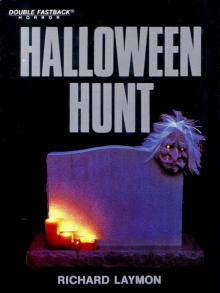 HALLOWEEN HUNT
HALLOWEEN HUNT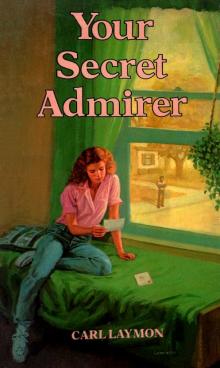 YOUR SECRET ADMIRER
YOUR SECRET ADMIRER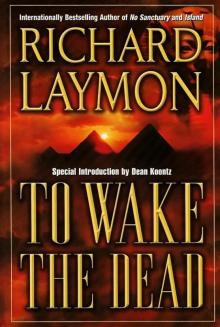 TO WAKE THE DEAD
TO WAKE THE DEAD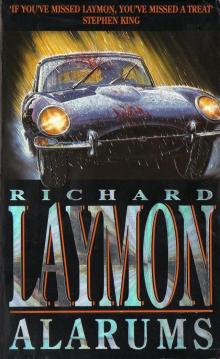 Alarums
Alarums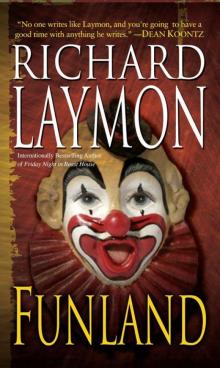 Funland
Funland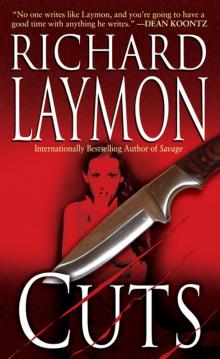 Cuts
Cuts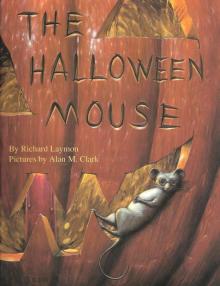 The Halloween Mouse
The Halloween Mouse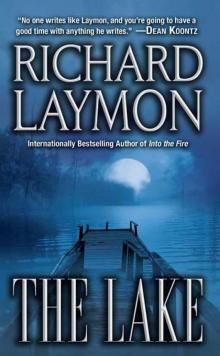 The Lake
The Lake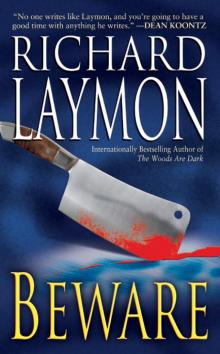 Beware
Beware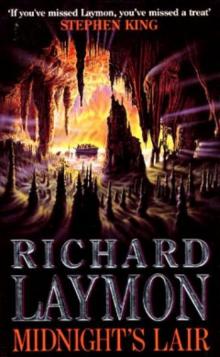 Midnight's Lair
Midnight's Lair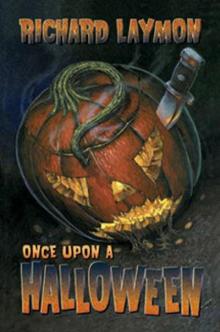 Once Upon a Halloween
Once Upon a Halloween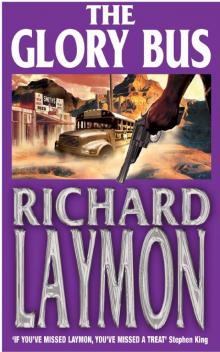 The Glory Bus
The Glory Bus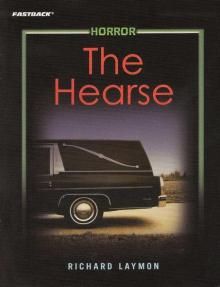 The Hearse
The Hearse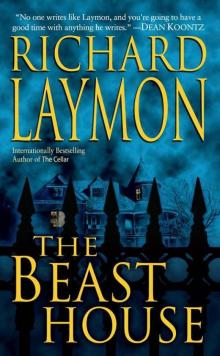 The Beast House
The Beast House Dreambox Junkies
Dreambox Junkies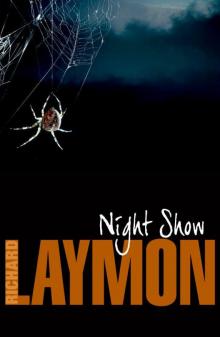 Night Show
Night Show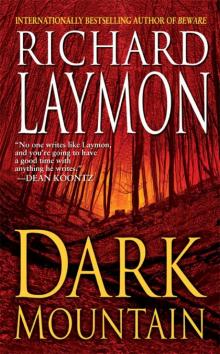 Dark Mountain
Dark Mountain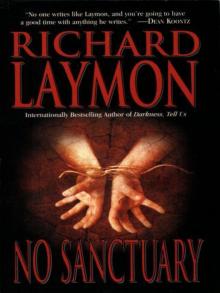 No Sanctuary
No Sanctuary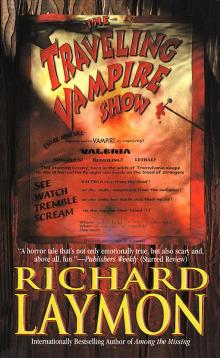 The Traveling Vampire Show
The Traveling Vampire Show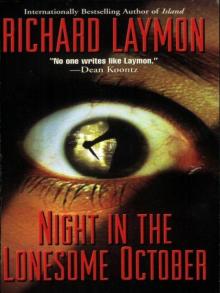 Night in the Lonesome October
Night in the Lonesome October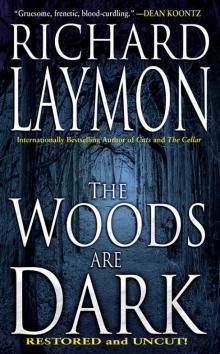 The Woods Are Dark
The Woods Are Dark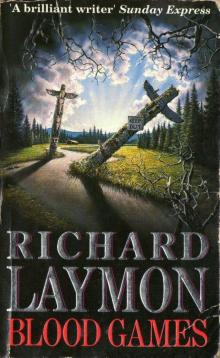 Blood Games
Blood Games Thin Air
Thin Air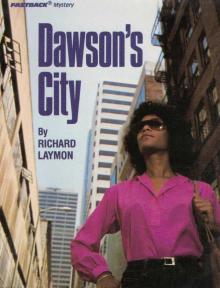 Dawson's City
Dawson's City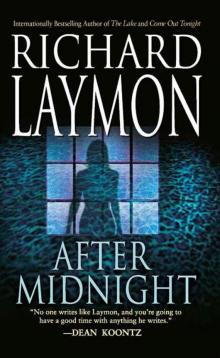 After Midnight
After Midnight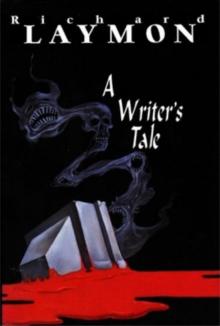 A Writer's Tale
A Writer's Tale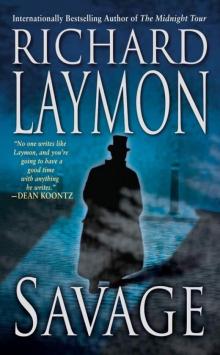 Savage
Savage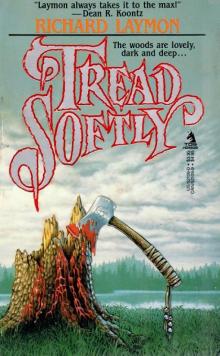 Tread Softly
Tread Softly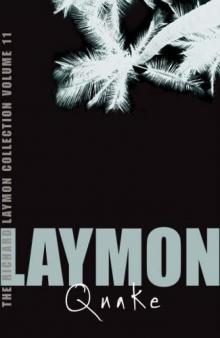 Quake
Quake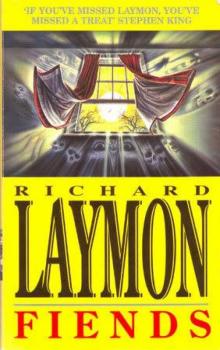 Fiends SSC
Fiends SSC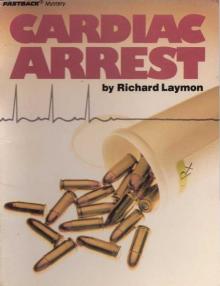 Cardiac Arrest
Cardiac Arrest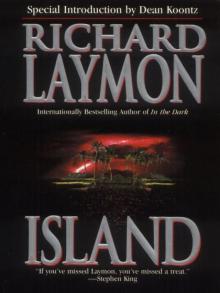 Island
Island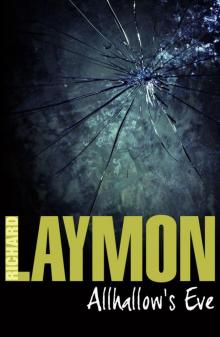 Allhallow's Eve: (Richard Laymon Horror Classic)
Allhallow's Eve: (Richard Laymon Horror Classic)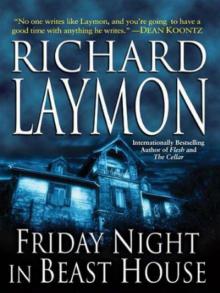 Friday Night in Beast House
Friday Night in Beast House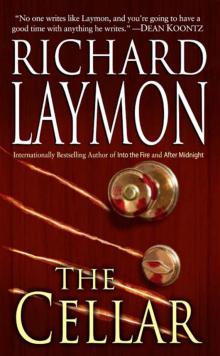 The Cellar
The Cellar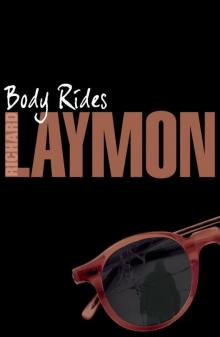 Body Rides
Body Rides The Wilds
The Wilds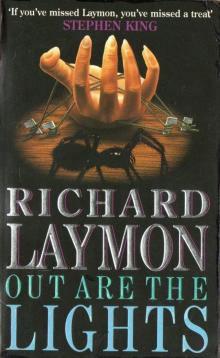 Out Are the Lights
Out Are the Lights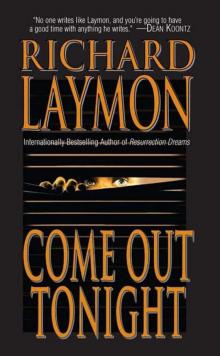 Come Out Tonight
Come Out Tonight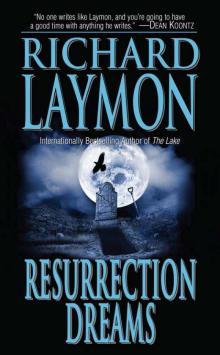 Resurrection Dreams
Resurrection Dreams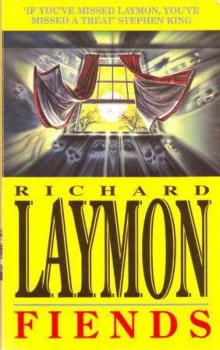 Fiends
Fiends The Cellar bhc-1
The Cellar bhc-1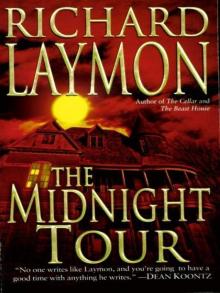 The Midnight Tour
The Midnight Tour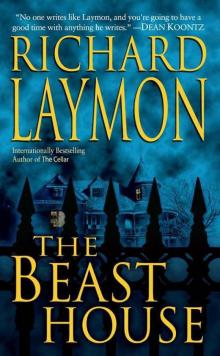 The Beast House bhc-2
The Beast House bhc-2 Endless Night
Endless Night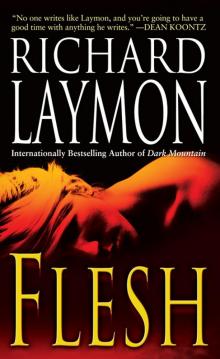 Flesh
Flesh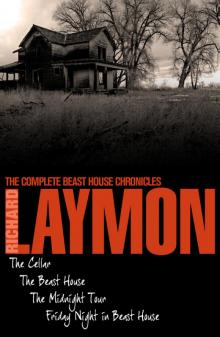 The Complete Beast House Chronicles
The Complete Beast House Chronicles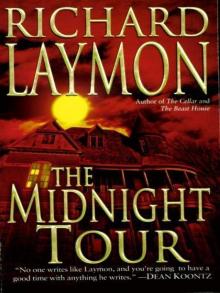 The Midnight Tour bhc-3
The Midnight Tour bhc-3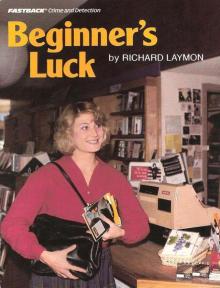 Beginner's Luck
Beginner's Luck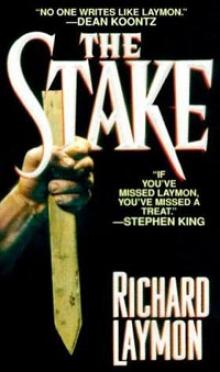 The Stake
The Stake